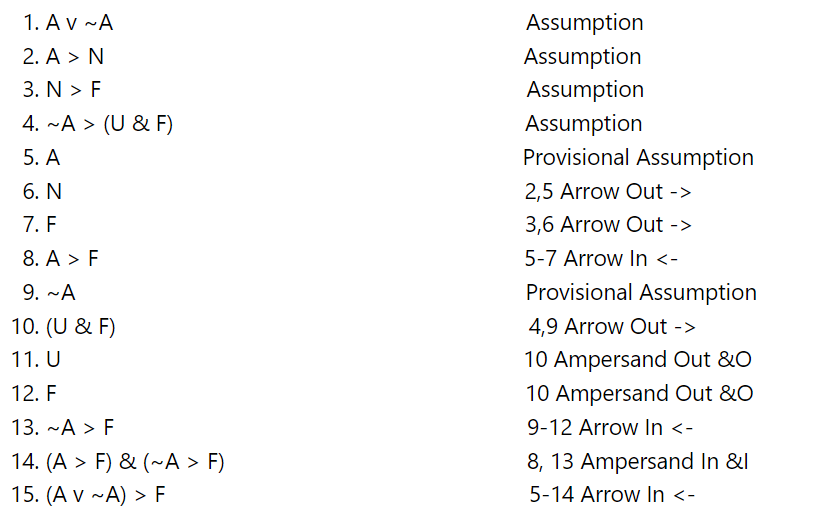EXCELLENT RESOURCE AVAILABLE HERE: https://courses.umass.edu/phil110-gmh/text/c05.pdf
Ampersand-In (&I): If one has available lines, A and B, then one is entitled to write down their conjunction, in one order A&B, or the other order B&A.
Ampersand-Out (&O): If one has available a line of the form A&B, then one is entitled to write down either conjunct A or conjunct B.
Wedge-In (∨I): If one has available a line A, then one is entitled to write down the disjunction of A with any formula B, in one order AvB, or the other order BvA.
Wedge-Out (∨O): If one has available a line of the form A∨B, and if one additionally has available a line which is the negation of the first disjunct, ~A, then one is entitled to write down the second disjunct, B. Likewise, if one has available a line of the form A∨B, and if one additionally has available a line which is the negation of the second disjunct, ~B, then one is entitled to write down the first disjunct, A.
Double-Arrow-In (↔I): If one has available a line that is a conditional A→B, and one additionally has available a line that is the converse B→A, then one is entitled to write down either the biconditional A↔B or the biconditional B↔A.
Double-Arrow-Out (↔O): If one has available a line of the form A↔B, then one is entitled to write down both the conditional A→B and its converse B→A.
Arrow-Out (→O): If one has available a line of the form A→B, and if one additionally has available a line which is the antecedent A, then one is entitled to write down the consequent B. Likewise, if one has available a line of the form A→B, and if one additionally has available a line which is the negation of the consequent, ~B, then one is entitled to write down the negation of the antecedent, ~A.
Double Negation (DN): If one has available a line A, then one is entitled to write down the double-negation ~~A. Similarly, if one has available a line of the form ~~A, then one is entitled to write down the formula A.

